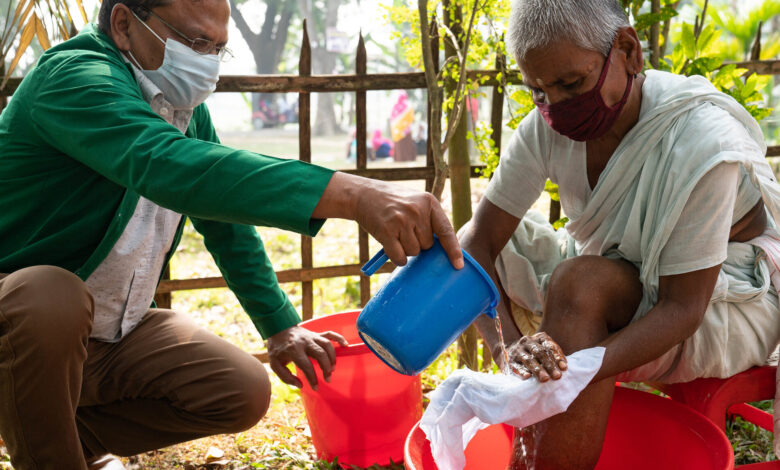
Community healthcare provider Golam Mohammad Shahjul Alam assists and monitors the care process as Menu Bala washes her leg at the Chini Para Community Clinic Sadar, Lalmonirhat, Bangladesh. Photo Credit: RTI International/ Abir Abdullah
Health BangladeshGoodbye Disease, Goodbye Stigma
Bangladesh became the fourth South-East Asian country to eliminate lymphatic filariasis, a stigmatizing disease due to the malformations it causes, thus eradicating one of its major public health problems through strong measures.
“Strong partnership, several innovative operational research projects in surveillance methodologies, and well-trained programme personnel have been key to the country’s success and will continue to be critical for the country to sustain its status of lymphatic filariasis elimination,” states Dr. Poonam Khetrapal Singh, Regional Director WHO South-East Asia.
Also known as elephantiasis, lymphatic filariasis is transmitted to humans through mosquito bites that cause painful enlargement of body parts, severe disability, and associated stigma. Since the disease was endemic in 19 of its 64 districts, Bangladesh launched its national programme to eliminate lymphatic filariasis in 2001. Until 2015, high-coverage mass drug administration campaigns took place and between 2011 and 2021, systematic and high-quality transmission assessment surveys were conducted. WHO has established two key components to eradicate lymphatic filariasis. First, large-scale annual treatment of entire populations at risk to stop the spread of infection and second, increased disease management and disability prevention measures to alleviate the suffering. Bangladesh follows in the footsteps of the Maldives, Sri Lanka, and Thailand by becoming the fourth South-East Asia Region to eradicate this public health problem.



